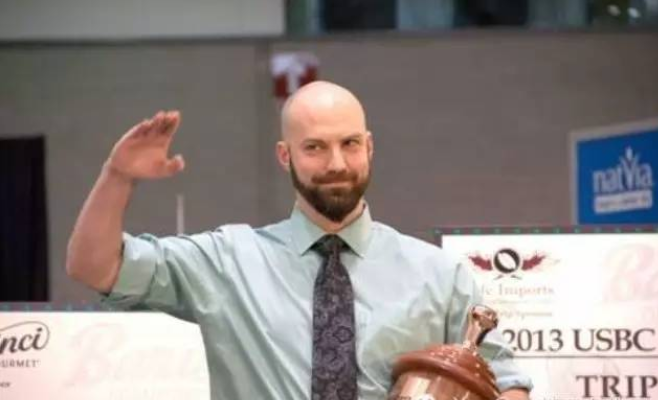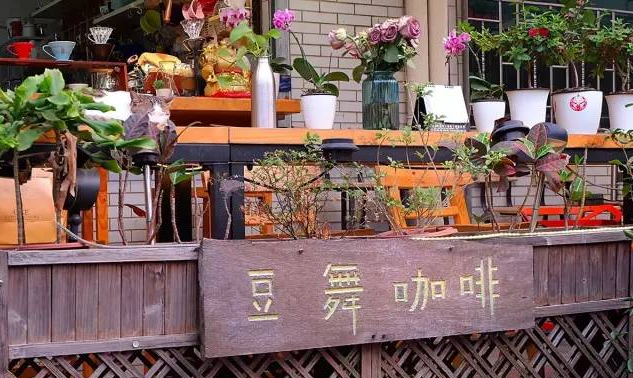Experience and suggestions on the World Barista Champion Pete Licata Competition
Follow the caf é (Wechat official account vdailycom) and found that Beautiful Cafe opened a small shop of its own.
Some of the problems I encountered in the competition. As a barista with rich competition experience, I spent 7 years participating in USBC to WBC competitions and accumulated these experiences. These experiences can be used in many places. So he won 13 top three (Top3) trophies in 16 competitions. It includes eight champions. Not to mention eight hours of face-to-face with the judges on the stage. When you encounter problems, sometimes the information you know is not in line with the reality after playing in the game. I have sorted out my ideas, which I hope will be of some help to your game.

Be aware of your goals
Set your own ideas and goals. I have heard other people's ideas such as "to participate in a competition is to have fun", "to be a great orator" or "to improve your own coffee making". These are all very good ideas and goals. If I unify these goals into the same as me (most baristas), it is: "try to do your best." Sometimes it sounds classy. However, I think this is a good competitive mentality, which helps to promote our progress and at the same time learn new techniques and improve the level of production. Of course, when trying to "do your best", the most important thing is to remain approachable and avoid proud words. Determining your game goals will help you better prepare your speech for the competition in the future.
If there is a new idea instead of "proving it" or "making a statement" in the game, it is not a good new idea in essence if there are new ideas and ideas that eventually become controversial by the referee. I think it is right that it is challenging to set up and demonstrate new ideas, to think about the ultimate feasibility of ideas, and if too much attention is paid to innovative ideas in the competition that leads to too much debate, then the goal is not to make a good cup of coffee.
Planning life and competitions
Try to imagine that the next speech is the most important speech of your life. This speech is in the last 1-2 months, and you need to spend some of your energy on finding resources and planning.
How would you plan?
Although this is not just a speech in itself, it is about a game, which requires backstage preparation (pre-race preparation), preparation time, and a wheelbarrow to carry your equipment, an interesting rule is that if this happens outside 15 minutes of preparation and competition, then you can completely control and organize your actions. If it's your turn to prepare, you will realize that you are in a hurry or even not ready.
Successful baristas will do a lot of important things before and after the competition, including organizing, paying attention to details, making tables and schematic diagrams of cart items. When you get to the backstage of the game, you can complete the task according to the requirements on the list. If you have a strong ability on the spot, you can put the items on the cart so that you feel comfortable to operate. Have you ever thought that by preparing systematically in advance, preparation will become more efficient and save time, which means that full preparation will free up more time to carefully review and recite your lines before the game and relax your nerves?
[list of plans for Pete Licata Competition]
One thing to note: you are a player, and when you are trying to finish your "peak work" competition, although all the preparations are going on perfectly and efficiently, keep in mind that your opponent is also your comrade-in-arms. When you have a small area of backstage preparation space that is going according to plan, when your game is over, you also have the responsibility to clean up the rubbish you have created in preparation, so that you can give better shape to the next player who is about to prepare. The usual habit is also very important, not the perfect barista who played the game for 15 minutes on the stage, but changed off the stage!
Write a speech
Once upon a time, when I was at school (never mind how long ago it was...) We were asked to write articles with a clear theme so as to help focus on writing and provide the follow-up reports / plot / term papers expected in the story. Of course, a speech can be changed into a conceptual essence, but the problem is that you need to create a coherent story in your speech. The message of your speech is to be clearly digested by the judges, and what you say should be promised to the judges to be true.
Of course, the way you tell stories is up to you. No one else can give you a more creative way of speaking, so you don't have to be confused about how to tell your story. Please speak boldly, for example, at the beginning? Or can there be a surprise at the end? Can it also be a hint that it has never been clearly stated? These are the choices that the contestants have to make. Just like you walk into many styles of buildings, different styles have different themes, and each theme is independent. You can focus on one topic or you can add secondary / tertiary themes.
Finally, you can select the content, do your best, essence what you have to say, and inject as much information and information as possible in 15 minutes.
Practice, analysis and improvement
The last suggestion is about practice. Almost every contestant has to face brutal preparation practice. Not in an excessive way to waste coffee and milk, practice is necessary, do not waste resources.
When I first started to practice and prepare, I developed a 15-minute process speech, so that I could carry out key exercises, and each process and speech were not qualified. There are three things that are very important for competition practice:
Teammates who can watch the exercise process from the point of view of the judges, those who have relevant competition experience are preferred, the more eyes the better.
A video recorder. It was a little difficult for me to have a video recorder in 2005, but now it's easier to arrange (ahem, cell phone)
The latest rating scale. Try to have the same table and coffee maker as possible, although not everyone can do it, and the venue is arranged as close to the game as possible.
Generally speaking, I suggest practicing in stages, starting with speech writing, speech writing, and brainstorming. Then record the speech in segments, and finally get familiar with it and then record it for a full 15 minutes (be sure to record it). Three to four weeks before the game, if you work five days a week, you can only concentrate on your rest. This practice is common and is the most important part of building the game.
Your teammates are your best friends and worst assistants, and you don't need to get everyone's different ideas. If people keep picking out your ideas or flaws in your practice, you will feel discouraged because they are well-intentioned trying to help you make an excellent speech (don't hate your teammates, by the way). Objective and honest analysis is the key to practice, and it will be better if you can gather seven people to simulate the referee.
Recording a video to watch can make you a better "host". In addition to getting comments from your teammates, it is also very helpful to watch the video yourself. there are two things to pay attention to.
Look at yourself: will your posture be convincing? The answer may be NO, especially if you watch the video for the first time. (the voice you hear when you make a video is very different from what you hear when you speak.) it usually makes us feel incredible. This is a good thing, because it will help you focus on non-verbal communication, hand movements and body language, and will make a good impression on you.
If you observe your own process, will you forget the equipment and items? Do you need to look back? This is to improve their own movements / techniques, so that the judges feel visually comfortable, if the overly complex movements as simple as possible, also reduce the occurrence of mistakes.
These are some of my ideas that I hope will help you become a great barista. The barista competition (USBC/WBC) is extremely complex, and its value can be enhanced by making full use of these competition experiences. Give it a try! You may find that you can do better than you think!
Important Notice :
前街咖啡 FrontStreet Coffee has moved to new addredd:
FrontStreet Coffee Address: 315,Donghua East Road,GuangZhou
Tel:020 38364473
- Prev

What is a barista? What exactly is a barista like?
Following Cafe Review (Wechat official account vdailycom) found that Beautiful Cafe has opened its own small shop barista, which is a new service industry in China. In fact, we should be proud to be a new type of barista. In fact, the current coffee market is different from the previous coffee model, in which baristas and waiters are separate.
- Next

Shenzhen boutique coffee industry elite figure, Douwu coffee founder long elder brother
Following caf é comments (Wechat official account vdailycom) found that boutique coffee opened a small shop of its own in Shenzhen is still a minority, not to mention 99% of people knew nothing about boutique coffee seven years ago, in such a market environment, long Brother who loves coffee still decided to open a boutique cafe. Douwu Coffee is the earliest boutique coffee shop in Shenzhen, which has experienced several times.
Related
- What is the meaning of lactic acid fermentation with coffee bean treatment?
- How to judge the state of foam by sound?
- How does the latte pull out the unicorn pattern? Come to get for a little trick to improve the flower pull!
- Will flower pulling affect the taste of the latte?
- Do you know the history of coffee?
- The difference between honey treatment and sun washing what is raisin honey treatment?
- What kind of milk can a novice use to make coffee foam to keep the foam longer? The correct method and skills of milking tutorial sharing
- Why do washed coffee beans taste sour? Flavor characteristics of washed Coffee
- Introduction to the skill of how to practice the size and height of water injection around the circle of hand-brewed coffee
- How do beginners practice coffee flower drawing from scratch?

